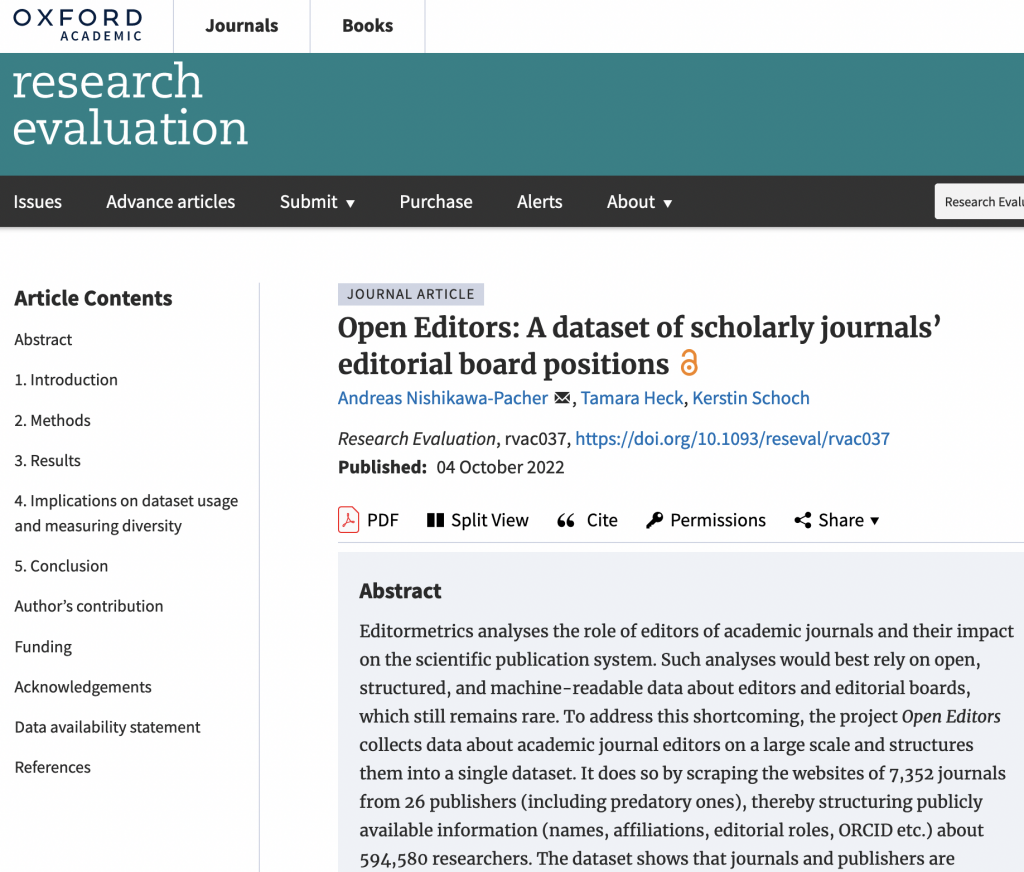Make things open, it makes them better. We just published our scientific article addressing diversity of editorial boards in social science. I’m so happy about this lovely postdisciplinary collaboration with Andreas Nishikawa-Pacher and Tamara Heck within the Open Science Fellow Program by Wikimedia Germany. The name speaks for itself: It’s completely open including Open Source, Open Data, and Open Access.

abstract
Editormetrics analyses the role of editors of academic journals and their impact on the scientific publication system. Such analyses would best rely on open, structured, and machine-readable data about editors and editorial boards, which still remains rare. To address this shortcoming, the project Open Editors collects data about academic journal editors on a large scale and structures them into a single dataset. It does so by scraping the websites of 7,352 journals from 26 publishers (including predatory ones), thereby structuring publicly available information (names, affiliations, editorial roles, ORCID etc.) about 594,580 researchers. The dataset shows that journals and publishers are immensely heterogeneous in terms of editorial board sizes, regional diversity, and editorial role labels. All codes and data are made available at Zenodo, while the result is browsable at a dedicated website (https://openeditors.ooir.org). This dataset carries implications for both practical purposes of research evaluation and for meta-scientific investigations into the landscape of scholarly publications, and allows for critical inquiries regarding the representation of diversity and inclusivity across academia.
Nishikawa-Pacher, A., Heck, T., & Schoch, K. (2022). Open Editors: A dataset of scholarly journals’ editorial board positions. Research Evaluation. https://doi.org/10.1093/reseval/rvac037
